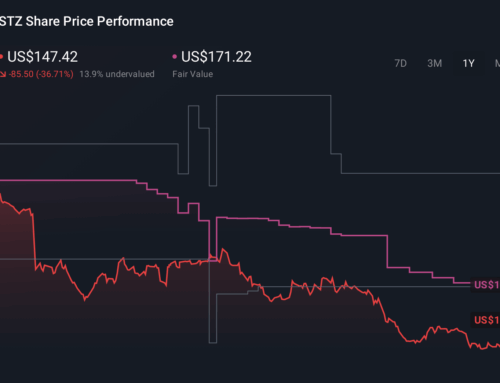Struggling PhD mums: The need for a supportive environment for mental wellbeing
April 13, 2025

PhD students have to deal with intense academic pressure and high costs. But the supports they receive is not equal to the challenges they face, putting many at risk of stress and even depression.
In collaboration with our authors, The Conversation Indonesia has published a series, “Jalan Terjal Doktoral” (The PhD Struggle), to shed the light on what doctoral students are going through. It also encourages us to think about the urgent need for both financial and non-financial support for PhD students.
Pursuing a PhD can empower women by advancing their careers and driving social change. Doctoral studies also provide a space for them to reach their potential and follow their passion for academic work.
However, the 2022 study by PhD Mama Indonesia revealed that PhD mums often juggle the academic responsibilities and household duties, such as childcare and domestic work. Without support, this double burden can lead to mental exhaustion, significantly affecting their academic productivity.
Just like many other mothers who have done a PhD, I too have felt the emotional strain of trying to balance both roles.
PhD and the risk of depression
PhD degree aims to create new knowledge through in-depth research that benefits society. But the journey is long and uncertain.
PhD students often deal with challenges like failed research, harsh feedback from supervisors, constant revisions, and publication pressures.
Unsurprisingly, PhD students are six times more likely to experience depression than general population. They’re also more likely to go through emotional and physical stress compared to those who do not pursue a doctorate.
Women face even higher risks. Studies show that women pursuing a PhD deal with greater stress than their male peers.
PhD mums’ struggles
The dual burden that PhD mums face often creates tension between professional and domestic roles. As a result, many deal with ongoing conflicts around decision-making and managing the workload.
During my third year as a PhD student at Monash University, Australia, I had to navigate a long-distance marriage after my husband returned to Indonesia upon completing his own PhD. During that time, I looked after our children on my own in Melbourne while continuing my research.
Academically, I struggled to grasp new theories and methods I hadn’t studied before. On top of that, the COVID-19 pandemic made me feel isolated and mentally drained. These two things made it harder for me to write my dissertation and added to my stress, especially as my research progress slowed.

anon_tae / Shutterstock
Hani Yulindrasari’s experience was different, but equally challenging. Alongside her coursework and household duties, the University of Melbourne alumna had to deal with funding problems — her scholarship only covered three years, but her research took longer than that.
Hani eventually applied for an extension, but the uncertainty around the process led her to depression. Without the extra funding, she wouldn’t be able to finish her studies in Australia.
Financial struggles also affected Frida (not her real name), a PhD mum at a top university in Indonesia. There were unclear funding policies from her scholarship provider, so she had to keep working full-time while raising her children — making her PhD a secondary priority.
Doing a PhD puts student-mums under constant pressure. They have to handle academic demands, financial challenges, and emotional strain all at once. In many cases, these pressures wear them down physically and mentally, raising the risk of chronic stress, anxiety, and depression.
Sadly, these challenges are often ignored or dismissed — especially in academic environments that are not fully supportive to women’s dual roles.
The importance of social support
PhD students who experience severe depression are three to five times more likely to drop out than those with mild symptoms. Support from family, academic supervisors, and peers play a key role in helping PhD mums manage their emotional burden. The following types of support are particularly essential:
1. Shared responsibilities with family
Damba Bestari, a psychiatrist and lecturer at the Faculty of Medicine Airlangga University, highlights the importance of shared responsibilities between PhD mums and their spouses or family members to reduce emotional strain.
“Family support can take many forms — from financial help to practical assistance, like childcare or setting aside time so mothers can focus on their studies,” she explains.
For example, Hani’s husband worked in Australia to help cover her study expenses. This allowed her to concentrate on her research. Meanwhile, Frida’s family supported her by avoiding pressure about academic achievements and taking care of her child when she felt overwhelmed by coursework.
2. Inclusive academic environment
Universities in Indonesia need to actively create an academic environment that’s inclusive and free from mental health stigma, especially for student mums.
Although public awareness of mental health has improved, many people still don’t see mental health issues as medical conditions. Instead, they tend to frame them as laziness or poor time management.
To shift this mindset, supervisors and advisors should give constructive feedback — not discouraging or harsh comments, and maintain supportive and open communication between PhD students and their mentors is key.
While not a mum, Aretha (not her real name), was a PhD student in the United States (US). She was able to get through her depression with help from a supportive advisor, along with encouragement from friends and family. Her story shows the importance of having an understanding and empathetic supervisor. Every PhD student can benefit from a support system like this.

BongkarnGraphic / Shutterstock
Universities should also provide free counselling services for students who need professional support.
In supporting PhD mums, universities should provide additional services such as on-campus childcare. The PhD Mama Indonesia even recommends providing childcare subsidies, regardless of their scholarship type.
3. Social interaction
One of my biggest regrets during my PhD journey was the lack of social interaction with other doctoral students. Between parenting and dissertation writing, I just didn’t have time to meet my peers and build social relationships outside my family. I felt lonely at times, and the isolation during the pandemic made it even worse.
Building social connections requires initiative from PhD students, but universities can play a part too. For example, setting up a peer support group can help students feel less lonely since they can share their experiences in a supportive environment.
4. Professional help
PhD students also need to build mental health awareness so they can recognise early signs of distress. Research shows that people who understand mental health issues are more likely to seek help and manage stress effectively before things get worse.
In Hani’s and Aretha’s cases, they were able to complete their PhDs because they understood the importance of mental health and weren’t afraid to seek professional help, like therapy or psychiatric support, when needed.
Being a PhD mum is a huge challenge — but it’s not impossible. Support from family, universities, and peers can make it easier to balance motherhood and PhD life. With a more inclusive and understanding academic culture, PhD mums don’t have to feel like they’re going through it all by themselves.
Search
RECENT PRESS RELEASES
Related Post



